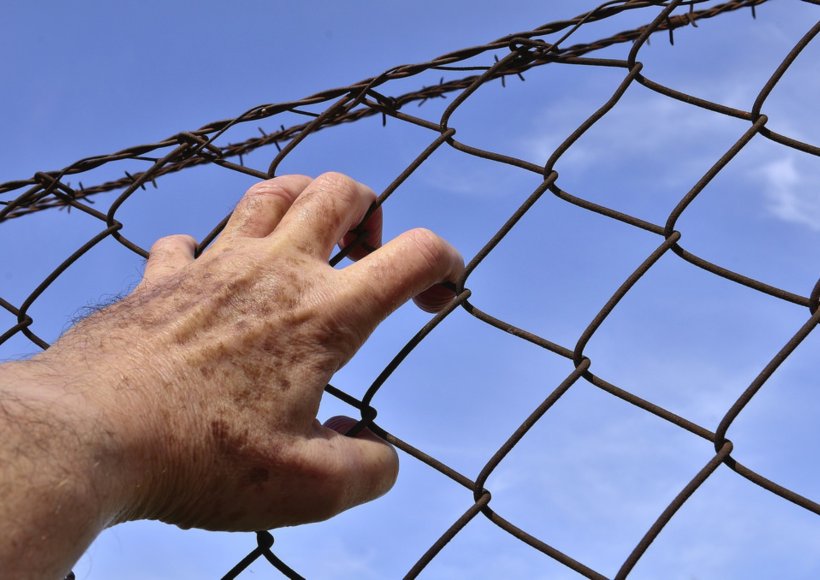By Russel Webster
NACRO briefing on how Friday prison releases can damage resettlement before it’s even properly started.
A new (24 August 2018) policy briefing from NACRO, Barriers to effective resettlement: Friday prison releases, examines a phenomenon which many probation and other staff have been familiar with for so long.
The difficulties with Friday releases
There are three main factors which contribute to additional problems with releasing people on a Friday:
- Increased number of releases
National statistics, as well data from Nacro services, show that more than a third of custody leavers are released on a Friday. This is for the simple fact that anyone whose last day of their prison sentence is on Friday, Saturday or Sunday (or Bank Holiday Monday) is released on a Friday — it is quite simply (and quite properly) illegal for prisons to hold people past their release date. This peak in releases on Fridays adds pressure to Offender Managers and Responsible Officers, local housing authorities, other accommodation providers, Jobcentre Plus offices and other community services. - Fridays are busy days in prisons
On Fridays, as on other days, prison staff need to prepare outgoing prisoners for court in the morning and, in addition, need to process the higher numbers of people being released. Due to performance indicators, prisons will prioritise preparing for court over those due for release. This can result in people being released later in the day, having limited time to present to services before the weekend. People being released may also have to travel significant distances to reach the area they are being resettled to, arriving late in the day, reducing the likelihood of securing all the support they need. This issue is particularly relevant to women and young people due to the configuration of the prison estate and the distance they may be from their home area. - Services in the community can have reduced service on Fridays and reduced or no service over the weekend
In addition to the above, people leaving prison are left with a limited window of time in which to make vital arrangements before services close for the weekend. A number of appointments and practical issues often need to be sorted out or planned for immediately, such as those highlighted previously. Some of the most crucial resettlement agencies run reduced services on Fridays or close early and run little or no service over the weekend.
Why is the day of release so important?
While, in some cases, support will have been in place for the 12 weeks prior to release, the day of release is often crucial for putting in place the basic building blocks for life outside of prison. As well as needing to attend mandatory appointments with relevant probation staff, prison leavers may need to do a range of things including:
Appointments with the local housing authority to make a housing application and find somewhere to live – around a third of people leave custody without housing and yet we know that safe and stable accommodation is a critical foundation to sustainable resettlement.1 Where housing has not been found prior to release, the most likely way to secure accommodation is to attend the local housing authority office in person.
Arranging employment and benefit support with Jobcentre Plus – prison leavers are currently not able to submit claims for benefits while in prison and, if they are needed, must do this on release. They will need to register for benefits such as Jobseekers Allowance or Universal Credit, Employment and Support Allowance, Housing Benefit.
Registering with a GP or accessing community mental health or substance misuse services – a higher proportion of people released from prison, compared with those in the community, have mental health or substance misuse issues. Those with health needs often require access to immediate medical support and medication.
The impact of Friday releases
The combination of the factors described above can leave people struggling to access vital services on a Friday and over the weekend and that this can increase the likelihood of reoffending. This is exacerbated on bank holiday weekends. People can be left to sleep rough or in unsuitable housing, not being able to access vital medication or support over the weekend – putting their own health and safety at risk as well as those around them – and having to survive with only a £46 discharge grant.
A lack of follow-up and support, often critical to keeping up the momentum of resettlement plans, over the weekend can mean quick disengagement. We know that there is often a window of opportunity for people on release when they are keen to make change and move on. However, this can be quickly lost when the barriers are too high and things are not in place to help them move forward and away from crime.
Solutions
NACRO argues that ending Friday releases would make a significant difference to people leaving prison being able to access the services they need to help resettlement. Spreading releases between Monday to Thursday and being able to put support in place earlier in the week would provide a more stable foundation for life in the community.
While, in the longer term, this might be helped by legislative change, NACRO puts forward four potential short-term solutions:
- Make more use of Release on Temporary Licence to release someone at least a day earlier;
- Increase use of Home Detention Curfew and ensure that where it is utilised, release is never on a Friday;
- For a determinate/extended sentence early release or recall, the Parole Board to use their discretion to avoid Friday releases;
- For ‘executive release’ (usually of those recalled to prison from licence) the Secretary of State to use their discretion to avoid Friday releases.
//
This content has been republished with permission from the author. See the original here.
Russel Webster is an expert in Criminal Justice and substance misuse, and the author of the blog russelwebster.com


